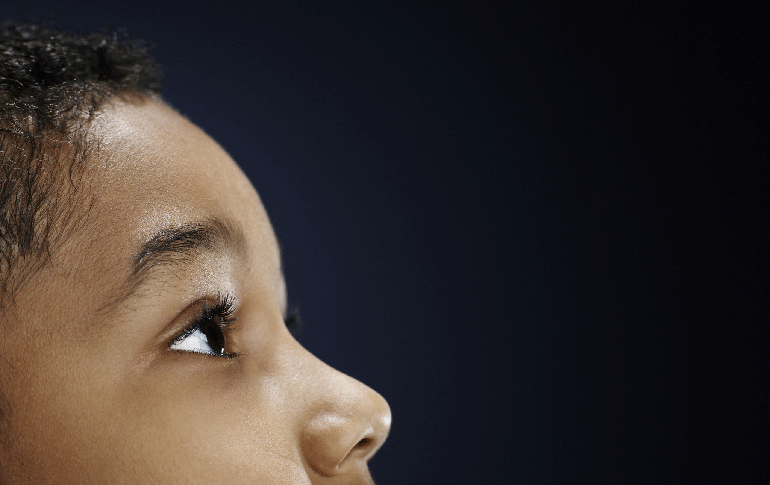When it comes to the police, most white people have the “If you’re not doing anything wrong, you’ve got nothing to worry about” attitude. While true for most white people, this couldn’t be further from the truth when it comes to Black people and police interactions—especially so for young Black children. For, to be young and Black in America is to live in a world full of folks who will always see you differently than you see yourself; to exist largely as defined by folklore, statistics, conjecture, and assumptions that deem you dangerous and “menacing” until proven otherwise. And, while the youthful-indiscretion period for white boys and girls extends well into their twenties, the same period for Black boys and girls continues to plummet, now hovering somewhere around age 12.
For most Black children raised in Black homes, this premature transition into adulthood will be painful, but it will not seem totally foreign and unexpected. Their parents, who share the Black experience, have been continuously teaching them what awaits them outside the safety of their homes.
Transracially adopted Black children are likely to experience far more dramatic transitions because they have lived under the cover of whiteness. Thankfully, more and more white adoptive parents are taking an active interest in what it means to be Black in America, with attention to how this shapes one’s relationship with law enforcement. Because of this awareness and concerted effort to prepare their adopted Black children, I am frequently asked when and how should white adoptive parents have “The Talk.”
Not Just a “Talk,” But a Conversation
For starters, it’s not really a talk. It is more of a continuous and ongoing conversation, often influenced by one’s geography, environment, and experiences. For instance, as your Black children begins to observe and internalize (and eventually experience) incidents of racial trauma against young children and adults who look like them, these incidents will naturally present opportunities for conversations. Unlike Black children raised by white parents, however, Black children raised by Black parents are more likely to have observed and experienced racial injustices directed at themselves and their parents, which provides a closer and more searing lens.
Children learn from observing parents in all situations, and a Black child observing his or her Black parent navigate an interaction with a police officer—after being pulled over for speeding, for example—will see something very different than a Black child observing their white parent in the same situation. Black children raised by Black parents will also likely have many more of these kinds of observations than their transracially adopted counterparts, given how frequently Black drivers are racially profiled and stopped by police. And when Black children raised by white parents find themselves as backseat observers in this situation, they are more likely to witness such seemingly basic tasks as retrieving the vehicle registration from the glove box or a driver’s license from a wallet. They are more likely to watch the driver plead their way out of a ticket in exchange for a warning. They will watch all of this as the officer stands calmly outside the driver’s side window.
By the time Black children raised by white parents get behind the wheel of a car themselves, they will have observed at least a decade of white motor-vehicle privilege in action and lived under a veil of whiteness. At worst, they will have come to assume entitlements that this country reserves for whites like their parents. But, unlike previous incidents of bigotry and bias they may have experienced, a Black child dealing with police on their own will at some point face overt hostility from someone who is carrying a gun, and they will do so without being able to count on timely parental intervention. There is no mom-and-me-against-the-world bubble of protection when stopped on the side of the interstate.
This reality makes it all the more critical that white parents raising Black children acknowledge that their children are becoming less and less protectable as they grow older and consciously and purposefully prepare them for life outside the walls of their home. This can be an especially difficult task when the parents themselves have never lived without white privilege.
Peeling Back the Cover of Whiteness
The cover of whiteness is a phenomenon that occurs when Black children move in predominantly, if not exclusively, white circles. Not only do these circles temporarily afford transracially adopted Black children many of the rights, protections, and privileges afforded their white contemporaries, they also insulate them from many of the hard truths surrounding what it is to be Black in America. They are, for the time being—and at their detriment—insulated from the reality of being a Black in America, in whose psyche Blackness and criminal behavior are inextricably merged. Regardless of who you are, where you came from, by whom you were raised, or what you’ve accomplished, being Black is sufficient probable cause. It is to be assumed guilty rather than innocent.
The cover of whiteness, as a matter of fact, is not portable and comes with a shelf life: As soon as the Black child separates from the pack, all rights, protections, and privileges previously afforded are immediately revoked.
So how do adoptive parents begin preparing their Black children for a premature transition into adulthood? By getting them involved in activities with other Black children as early as possible and enrolling them in schools with kids and teachers who look like them. Providing Black mentors is also important, as is connecting them to the Black community; this means white adoptive parents must forge authentic relationships with Black people.
In the simplest of terms, the more time Black children spend with Black people on a regular basis, the more they will understand and appreciate what it means to be Black in America. This knowledge will prove helpful as “The Talk” becomes deeper and more directed, as your transracially adopted Black children develops their identity and goes out into the world on their own as a Black adult.



